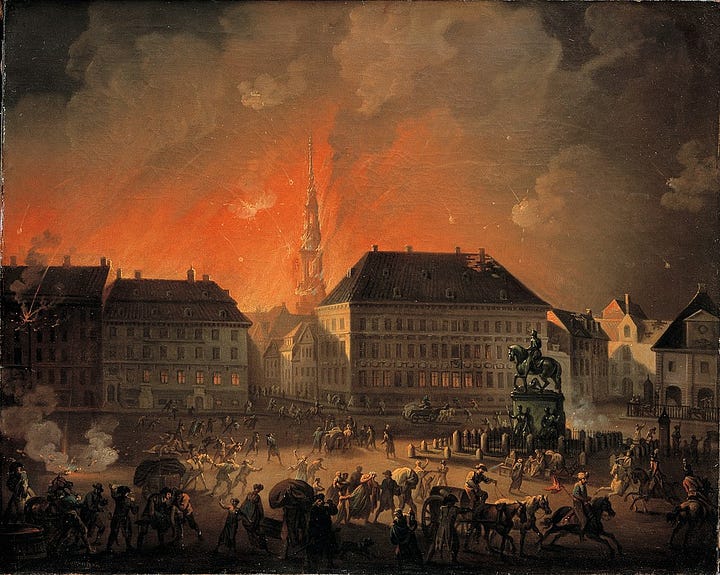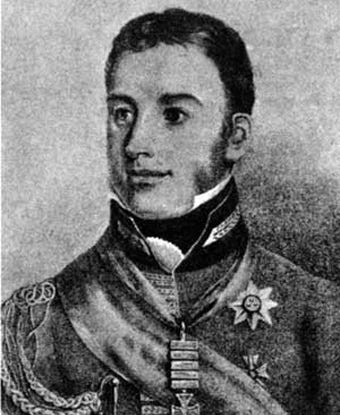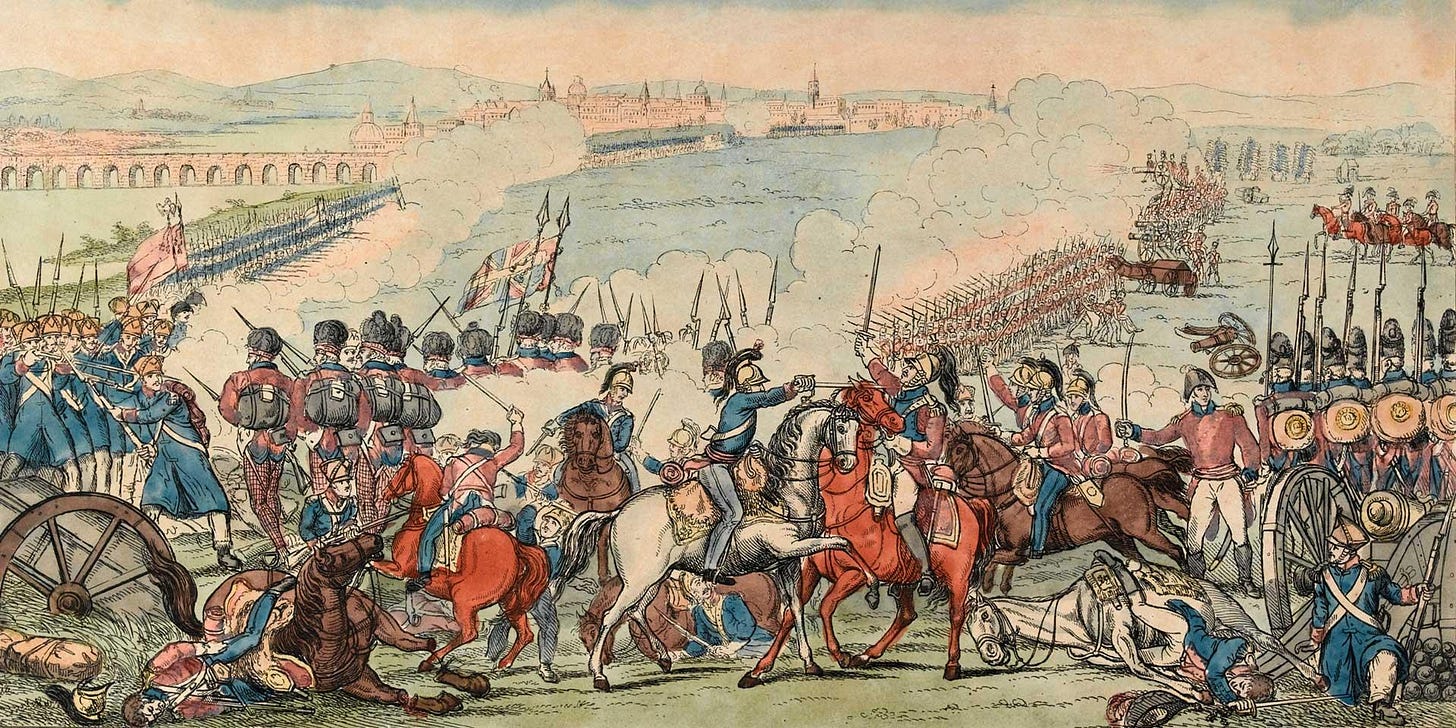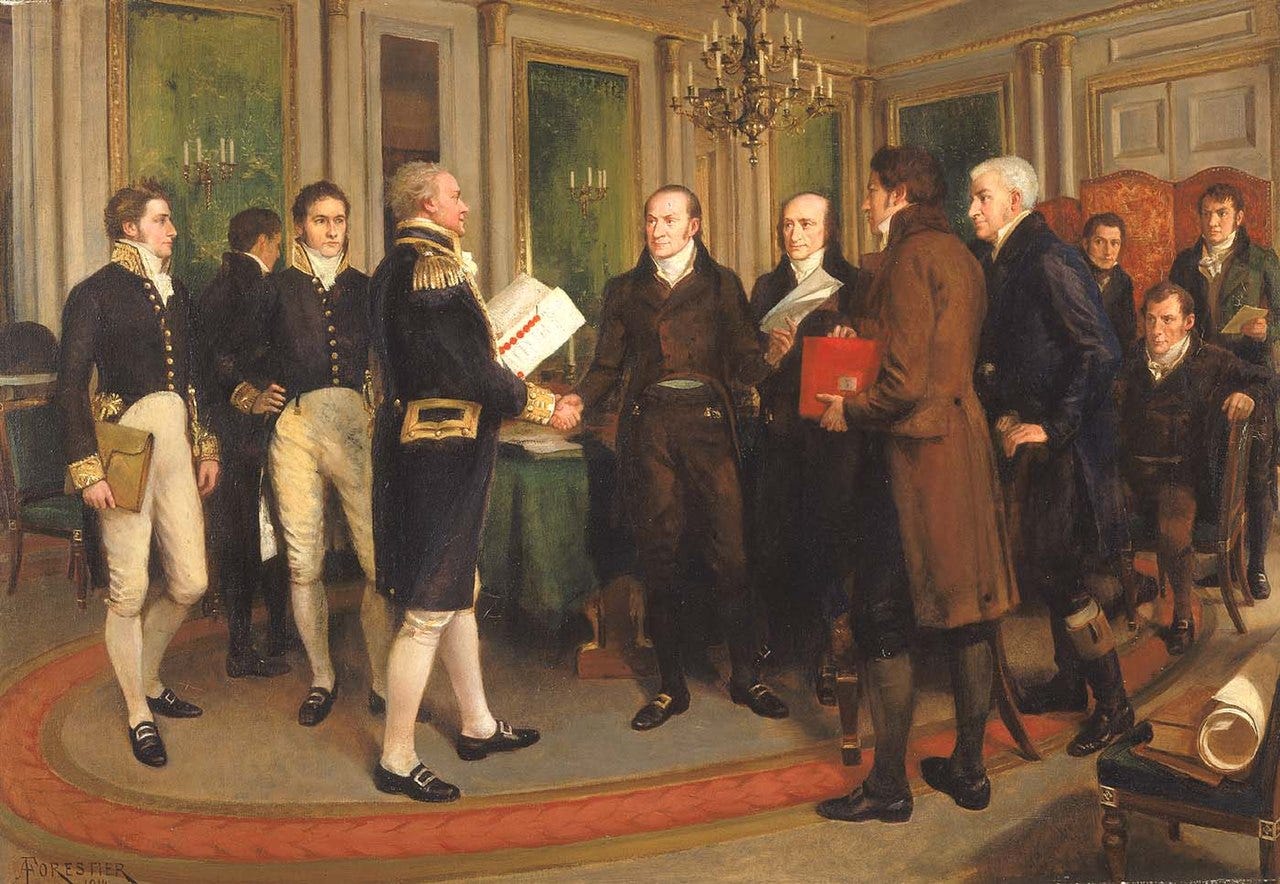I’m currently in New Orleans and thought it fitting to throw out a relevant newsletter - albeit breaking the normal schedule. Today I want to look at Edward Pakenham - an Anglo-Irish officer in the British army and brother-in-law to Arthur Wellesley, 1st Duke of Wellington. His career in the British Army spanned several military campaigns garnering a reputation which is still disputed in the historiography today.
Edward Pakenham was born 1778 at Langford Lodge near Belfast and from an early age he showed little interest in education. At the age of 16 he decided to purchase a commission in the British Army as lieutenant and due to his family connections, rapidly rose through the ranks to Major by 1795 at the age of 17.
Pakenham saw action in the Irish Rebellion of 1798 where he commanded the 23rd Light Dragoons in Ballinamuck against the troops of General Humbert. After this Pakenham saw action in the West Indies at the capture of St Lucia (1803), the Battle of Copenhagen (1807) and Martinique (1809).


Where he really earned a reputation as a strong and capable ruler was the Peninsular War of the Napoleonic Wars. He served with distinction along side Arthur Wellesley who also made a name for himself in the campaign. He earned the enduring respect of his troops and reportedly was well liked by soldiers and officers alike.
He commanded units at the Battle of Bussaco and Fuentes de Oñoro. It was at the Battle of Salamanca in June 1812 however that Wellesley gave Pakenham command of an entire division and was tasked with shattering Marmont's advance on the French right flank. He would later be given command of another division during the Battle of the Pyrenees in 1813.
Following the supposed defeat of Napoleon in the summer of 1814, Pakenham was sent to North America to become commander of the British North American Army during the War of 1812 following the death of another Irish commander, Robert Ross. Ross, an Irish figure worth highlighting at a later date, was the man who gave orders to burn all public buildings in Washington D.C. including the White House.
Edward Pakenham arrived in America on Christmas Day 1814 - arriving in New Orleans, a major trading port for the United States. He arrived midway through the Gulf Campaign of the war - the objective of which was to seize control of the Gulf Coast territory and challenge the validity of the Louisiana Purchase ten years previously. Pakenham was frustrated to arrive and find his army both poorly positioned and undersupplied.
In spite of this he made the decision to attack New Orleans at day break on 8 January 1815. He grossly underestimated the strength and power of the American artillery guns - under the command of future president Andrew Jackson - which inflicted severe damage on both his troops and himself. In the initial charge he was hit by grape shot which killed the horse under him and shattered his knee. He rose, mounting another horse to continue moving forward and was shot a second time in the arm and finally in the chest.
This final shot proved fatal, passing through his spine - killing him instantly. The battle proved a humiliating defeat for the British. The American troops were well dug in to their defensive positions and after just 30 mins the battle was over - with over 2,000 casualties for the British and less than 15 for the Americans.
The reputation Pakenham had garnered from his time fighting across the Atlantic and under the Duke of Wellington in the Iberian Peninsula was largely undermined by the disastrous defeat at the Battle of New Orleans. He is largely remembered as a great second-in-command but a terrible independent leader.
Perhaps the most heart-breaking detail of this episode is that the battle needn’t have taken place at all. The day before Pakenham arrived in New Orleans, 24 December 1814 - the Treaty of Ghent was signed, formally bringing to an end the War of 1812 between Britain and America. Win or lose, the battle was an unnecessary venture - news simply hadn’t arrived of the signing of the treaty yet, and still over 2,000 lives were lost and a reputation ruined.
If you like my work and want to say thanks, or support me in another way, you can buy me a coffee! Nothing is expected, but any support is greatly appreciated! https://www.buymeacoffee.com/ruairiaor
Further Reading:
Valerie McNair-Scott, The Battle of New Orleans: Major-General Sir Edward M. Pakenham (1965).
Michael Glover, The Peninsular war, 1807–14 (1974).








Welcome to the U.S., Ruairi.